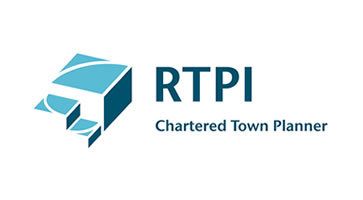The Government has made efforts in recent years to simplify the planning processes to assist in the creation of new homes. One such initiative is the creation of a new Use Class, Class MA which allows a change from commercial (Class E) to residential use. This was introduced in 2021. Below we explain what Class MA is and the types of buildings that are eligible for the process.
What is Class MA?
Class MA allows most Class E properties (commercial) to be converted into residential properties. This is a prior approval process where the change of use is already acceptable in principle. A prior approval application must be made to the Local Planning Authority.
A prior approval application will be assessed against the following criteria:
- Impact on transport and highway safety
- Potential site contamination
- Risk of flood
- Noise from commercial units affecting or could affect residents
- Natural light being required for all habitable rooms
- The impact of the conversion on businesses in the area
- Effect on local nurseries or health centres, where an impact assessment may be required.
What Uses Require Class MA
Examples of Class E properties that are eligible for Class MA change of use include:
- Shops
- Financial and professional services
- Restaurants and cafes
- Offices
- Light industrial
- Medical or health services
- Crèches
- Day nursery
- Indoor sports including gyms
All of the above types of properties can be converted into residential properties provided that the floor space does not exceed 1,500 square metres. Note that this is for residential use only. Class C3 single-family dwellings cannot be converted into a House of Multiple Occupation (HMO) under Class MA.
Class E to Residential Limitations and Restrictions
While Class E to Residential (Class MA) applications are done via a prior approval process which is typically acceptable in principle, there are a few limitations and restrictions you should be aware of:
- The property must be vacant for a period of 3 months before an application for prior approval can be made. If tenants occupy the property an application cannot be made.
- The building must have been of Class E use for example as a shop or an office, for at least 2 years before the application was submitted.
- Buildings cannot be converted where they are located within a national park, Area of Outstanding Natural Beauty, a World Heritage Site or where the building is Listed
- Conversions cannot take place in designated ecological sites such as SSSIs (Sites of Special Scientific Interest) and SPAs (Special Protection Areas)
- In a conservation area, any conversion of the ground floor will require a Heritage Impact Assessment
- Planning fees are £100 and prior approval for a valid application will be deemed to be approved if no decision is made within 56 days of validation
- Most ground floor commercial uses in town centres are valued higher than pure residential and commercial buildings on industrial estates. As such, they are unlikely to prove attractive
- One thing to consider, rateable values and rents in city centres are steep. These need to drop considerably for conversions and re-use to become viable in such areas.
Contact Us Today
If you’re unsure about the Use Class Orders and how they relate to your business or property, we’re here to help. Our team of Planning Consultants, Architects, and Conservation Specialists are here to help you navigate complex planning applications from start to finish. Get in touch today to learn more about your options and what we can do to help you achieve a successful planning application.



